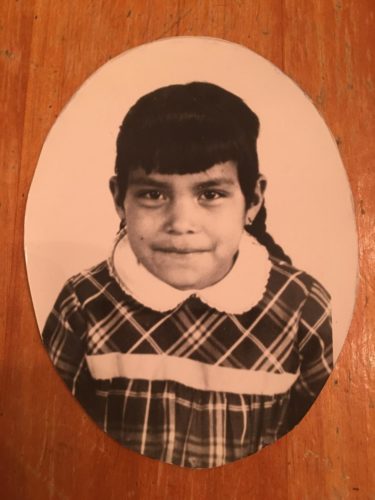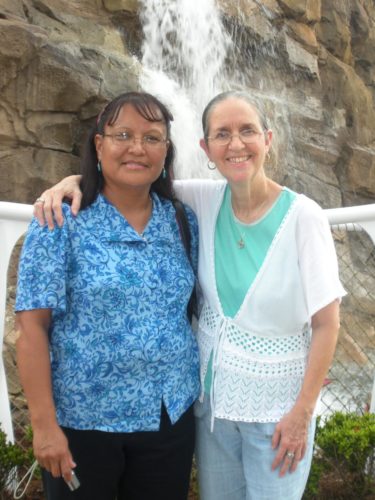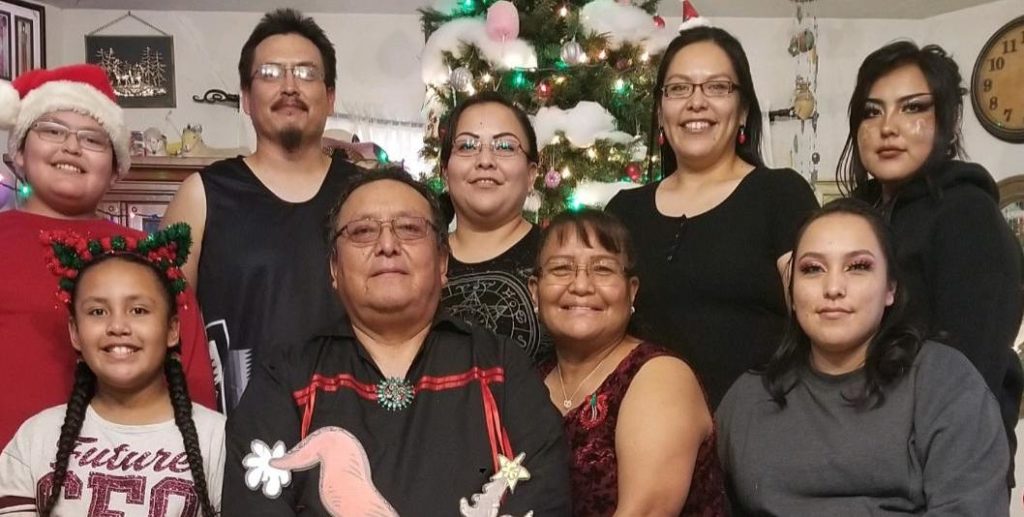When Shirleen Joe first contacted Children Incorporated this past summer, she mentioned to our sponsorship department that she herself was a sponsored child growing up.
Children Incorporated Director of Development Shelley Callahan emailed Shirleen Joe to ask her more about the sponsorship experience and how being a sponsor herself has been.
“I was a Native American child sponsored through my school back in 1972. I still have contact with my sponsor today. I’ve even considered her my stepmother, which she accepted, so now I call her “Mom.” I want to become a sponsor now to pay-it-forward,” wrote Shirleen.
“I asked her how she sponsored me when I was a child and she was glad to give me the information about Children Incorporated, but said she wasn’t aware if the organization still existed. After doing research, I came to find out that you all still do exist. I was so grateful!”
After she signed up to become a new sponsor, Children Incorporated’s Director of Development Shelley Callahan emailed Shirleen Joe to ask her more about her experience growing up with a sponsor and how she feels about our sponsorship program.

Shirleen Joe as a young girl in New Mexico
SC: Tell us a little about your background with Children Incorporated.
SJ: Back in 1971, I was attending a local boarding school when I was only 8 years old. I was informed that I had a “sponsor.” Not knowing what was going on, I was given a pencil and paper and was told to write a letter to her. I later came to find out that it was through Children Incorporated that an individual had volunteered to help me with basic needs.
SC: What state was your boarding school located in?
SJ: It was located in Crownpoint, New Mexico.
SC: Can you tell US just a little bit more about what your childhood was like?
SJ: In our native tradition we are required to introduce ourselves in our native language and in the proper manner like: “Hello, my name is Shirleen Joe, I am of (maternal clan) the Tohdicheenie Clan (Bitter Water). I am born of the (paternal clan) Ma’ii desh gish nii Clan (Coyote Pass People) also known as the Ah shii nii Clan (Salt People). My father was the late Herbert F. Martin and was employed as a Heavy Equipment Operator with the local BIA Facility Management until his passing in 1979. My mother is Etta J. Martin, a home maker.
My parents, myself and all my siblings lived in a house called a hogan, which is a one room open space area for living. The furniture was located in certain areas against the wall to sort of make sections for the kitchen and sleeping areas.
The only ones that actually had a bed to sleep on were my parents. Myself and my three sisters slept on the ground on one big mattress and my three brothers also had their own big mattress to sleep on. In the morning we would take out those mattresses and hang them on the clothes line to air out for the next night.
I was one lucky individual to have a sponsor which personally felt like I had a foster parent who cared enough to individually support me.
A lot of things that I got were hand-me-downs from my older siblings. The only new thing that I received was usually from my sponsor sending me something like a gift. I was shy and timid as a child, until I became a teenager and obtained a permanent job that got me out of my shell. Now, I can give a public speech in both the English and Navajo (Dine’) language with no problem.
SC: What do you currently do for work?
SJ: I currently work for the Navajo Nation Food Distribution in Crownpoint.
As a young adult, I worked for Wendy’s Restaurant in Gallup, New Mexico; thereafter, I applied to and got hired permanently with the City of Gallup Police Department working in the Records Department. I put in a total of twenty five years and then retired from there, then stayed at home for two years before deciding I was ready to go back to work. I then worked for the Navajo Nation Division of Aging and Long Term Care Support, the Navajo Land Commission, the Navajo Technical University, and now I am at the Navajo Nation Food Distribution which is where I will remain until I decide to retire permanently from the employment life.
SC: What are some of your memories of having a sponsor growing up?

Shirleen Joe pictured with her sponsor, Karen
SJ: I remember that out of the hundreds of children attending the boarding school, I was one of the lucky ones that got a sponsor through Children Incorporated. My sponsor would send me letters and gifts for my birthday or for Christmas.
SC:What was your biggest motivation for becoming a sponsor yourself?
SJ: My biggest motivation was having six other siblings and losing my father at a young age, which was hard for my mother. I was one lucky individual to have a sponsor which personally felt like I had a foster parent who cared enough to individually support me. In knowing that, I decided to become a sponsor myself after becoming an adult and making a living on my own.
SC: What do you think are some of the most rewarding aspects of sponsorship?
SJ: Personally, I would say that no matter what kind of family life you’re going through, there’s always someone out there to help you financially, provide you with hope that everything will be okay no matter the circumstances, motivate you to know that you are able to face any challenges, and offer a life-long friendship. To this day, I still have contact with my sponsor. I consider her as my secondary parent and her children as my own siblings.
***
How do I sponsor a child with children incorporated?
You can sponsor a child in one of three ways: call our office at 1-800-538-5381 and speak with one of our staff members; email us at sponsorship@children-inc.org; or go online to our sponsorship portal, create an account, and search for a child that is available for sponsorship.

